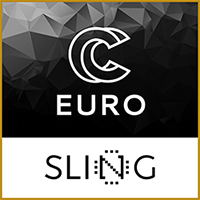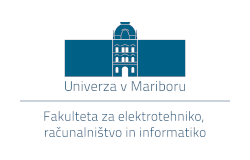Description: This course provides a hands-on introduction to deep learning, a powerful AI technique used across industries such as healthcare, retail, and automotive. Students will learn how to train deep learning models using tools like PyTorch, focusing on key concepts such as Convolutional Neural Networks (CNNs), data augmentation, and transfer learning. Through practical exercises, participants will gain experience in building models for image classification, natural language processing, and more. By the end of the course, you'll have the skills to tackle deep learning projects with modern frameworks and approaches.
Detailed description: This course offers a comprehensive introduction to deep learning, a key technology driving advancements in industries such as healthcare, retail, and automotive. Deep learning utilizes multi-layered neural networks to solve complex tasks such as image recognition, language translation, and speech processing. The course aims to equip students with the foundational skills needed to train and deploy deep learning models, using modern tools like PyTorch. With practical applications ranging from object detection to personalized experiences, you'll learn how to apply AI to real-world problems.
Throughout the course, you'll explore important deep learning concepts such as Convolutional Neural Networks (CNNs), data augmentation, and transfer learning. These techniques are essential for improving model accuracy and efficiency, especially when working with large, complex datasets. The curriculum also covers the use of pre-trained models such as LLMs, which enable faster model training by leveraging existing knowledge. Additionally, you'll explore advanced topics like recurrent neural networks (RNNs) and natural language processing (NLP), which are crucial for sequential data tasks and text-based applications.
By the end of the course, you'll apply your knowledge to a final project, where you'll build an object classification model using computer vision techniques. You'll enhance model performance through transfer learning and data augmentation, gaining valuable experience in optimizing models with limited data. The course will also guide you through setting up your own AI development environment, preparing you to take on deep learning projects independently. Whether you're new to AI or looking to expand your skill set, this course provides a solid foundation for anyone interested in the rapidly evolving field of deep learning.
At the end of the workshop, participants can obtain an official certificate from Deep Learning Institute from NVIDIA.
Workflow: The workshop takes place remotely via a browser on the AWS cloud infrastructure.
Date and time: 29. 11. 2024, 9.00 - 17.00
Difficulty: Beginner
Language: English
Max. number of participants: 30
Virtual location: MS Teams
Suggested prerequisites: An understanding of fundamental programming concepts in Python 3, such as functions, loops, dictionaries, and arrays; familiarity with Pandas data structures; and an understanding of how to compute a regression line.
Target audience: HPC developers using CUDA in the network or cloud.
Skills to be gained:
- Learn the fundamental techniques and tools required to train a deep learning model
- Gain experience with common deep learning data types and model architectures
- Enhance datasets through data augmentation to improve model accuracy
- Leverage transfer learning between models to achieve efficient results with less data and computation
- Build confidence to take on your own project with a modern deep learning framework
- Leverage transfer learning between models to achieve efficient results with less data and computation
- Build confidence to take on your own project with a modern deep learning framework
Organisers:
|
Lecturers:
| Name: | Domen Verber |
Domen Verber is an assistant professor at the Faculty of Electrical Engineering and Computer Science of the University of Maribor (UM FERI) and ambassador of the NVIDIA Deep Learning Institute for the University of Maribor and their HPC specialist. He has been dealing with HPC and artificial intelligence issues for more than 25 years. | |
| domen.verber@um.si, deep.learning@um.si |
| Name: | Jani Dugonik |
Jani Dugonik is an academic researcher at the Faculty of Electrical Engineering, Computer Science and Informatics of the University of Maribor (UM FERI). He has been working in the field of natural language processing and evolutionary algorithms for more than 10 years. | |
| jani.dugonik@um.si |







 x
x

